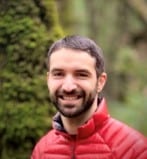[CANCELLED] March 17th, 2020: Quantitative Plasmonic Sensing with Single-Chip Inkjet Dispense Surface Enhanced Raman Spectroscopy (ID-SERS)
The following talk on Tuesday March 17, 2020 has been cancelled and will be rescheduled at a future date.
Wishing everyone good health and to stay safe during this time!
——
Quantitative Plasmonic Sensing with Single-Chip Inkjet Dispense Surface Enhanced Raman Spectroscopy (ID-SERS)
Dr. Fausto D’Apuzzo, Optical Scientist, HP Labs
Register: Here
Tues March 17
11:30am: Networking & Pizza
Noon-1PM: Seminar
Cost: $4 to $6
Location: EAG Laboratories – 810 Kifer Road, Sunnyvale

ABSTRACT
In this talk, I will present our Laboratory work on highly-quantitative plasmonic sensing based on Surface Enhanced Raman Spectroscopy (SERS). I will first describe our nano-imprinted SERS substrate architecture and performance. Then I will show how inkjet dispensing can be used in conjunction with SERS to encode each sensor with a calibration pattern of microdroplets (~30 pico-liters), with the aim of locally calibrating sensor performance. This way, we demonstrate that Measurement Uncertainty of the SERS signal can be reduced below 2%, which to our knowledge, is a new record for plasmonic sensing platform. Furthermore, the use of inkjet dispensing in combination with Raman mapping improves assay throughput (100-fold) and reduces sample volume consumption (105-fold) in an automated and reproducible fashion. Since this approach overcomes important practical hurdles, we believe that this work reignites interest in the potential commercialization of plasmonic-based chemical sensors.
Recent paper for reference: A Generalizable Single-Chip Calibration Method for Highly Quantitative SERS via Inkjet Dispense.
SPEAKER BIOGRAPHY

Dr. Fausto D’Apuzzo is Optical Scientist at HP Labs, working on the Life Science team. His research interests are in optics systems, plasmonics and metamaterials for bio-sensing, with a focus on Surface Enhanced Raman Spectroscopy (SERS). He started investigating plasmonic systems since his master (2011) and PhD at the University of Rome “Sapienza”, before holding a postdoc position at L. Berkeley National Labs (LBNL) studying 2D plasmonic systems with Synchrotron Nano-Spectroscopy. He interned as an Optical Engineer at ACAMP (Alberta, Canada) before joining HP Labs (2018-present) where he is developing plasmonic sensing systems for quantitative chemical analysis.
